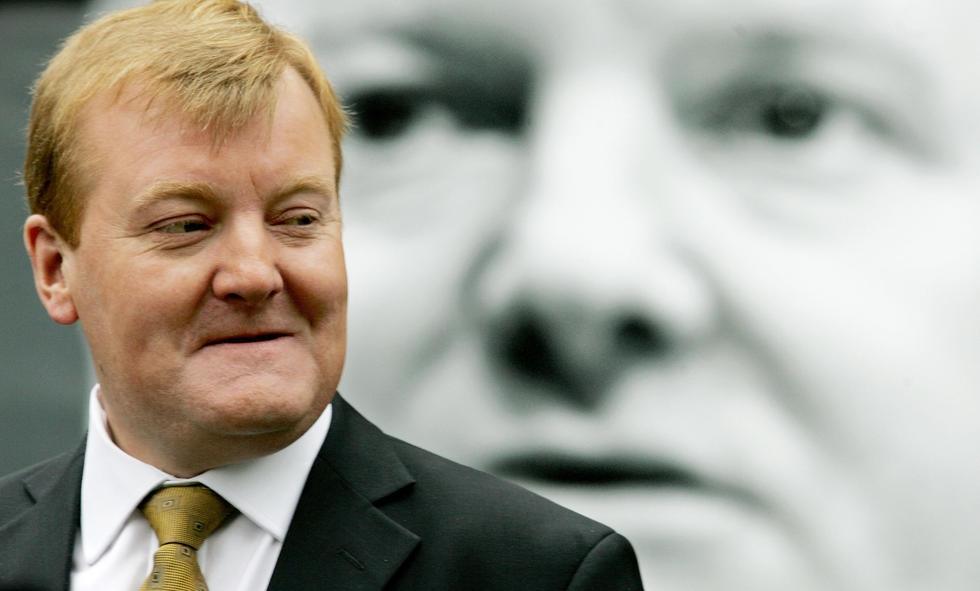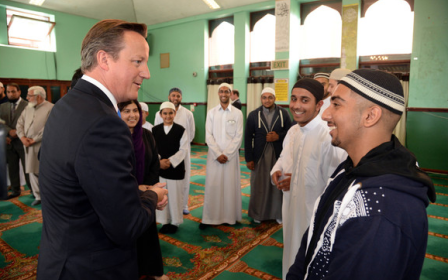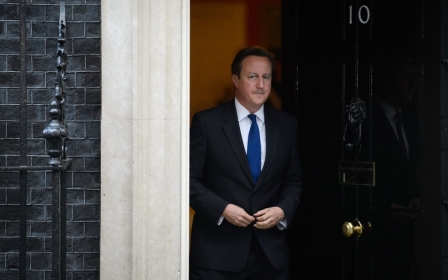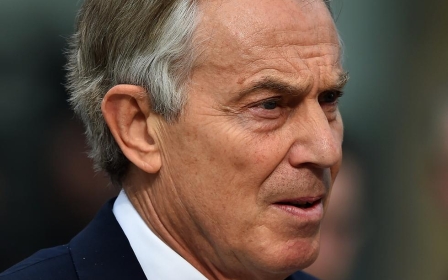Charles Kennedy: Iraq War opponent and much-loved politician dies at 55

The unexpected death of British parliamentarian Charles Kennedy at the age of 55 on Tuesday led to a national outpouring of grief across the political spectrum and from numerous corners of UK society.
Kennedy, former leader of the Liberal Democrat party and Scottish MP, had been regarded as a hugely likeable politician, but his career had long been marred by a hardly concealed drinking problem, which eventually led to his ouster from the leadership of his party in 2006.
As a strong critic of the government of Tony Blair, he took a strong stance against the introduction of tuition fees, the security state and, perhaps most memorably, UK involvement in the invasion of Iraq.
Kennedy originally began his political life in the Labour party, but in 1983 joined the right-wing of the party - who had been frustrated by the party’s internal divisions and apparently shift to the left - in breaking away to form the Social Democratic Party. In 1988, they merged with the venerable Liberal party to form the Liberal Democrats.
It is perhaps ironic, therefore, that one of Kennedy’s most highlighted achievements was in establishing the Liberal Democrats as a centre-left alternative to the Labour party after the beginning of the ‘New Labour’ project in the 90’s.
Taking over in 1999 from military man and former High Commissioner of Bosnia Paddy Ashdown, Charles Kennedy quickly set about establishing himself a popular and amiable figure, starkly contrasting with the ‘on-message’ spin of New Labour.
He was the first serving leader of any political party to appear on the BBC satirical panel show Have I Got News For You, where he endeared himself to his audience with his wit and good humour.
He also took his party into the clear role of staunch opposition to the 2003 invasion of Iraq.
Kennedy argued that the UK was being “bulldozed’’ into military action by a “small clique” who were in thrall to American geopolitical interests.
“We all accept the world would be safer without Saddam's baleful dictatorship,” he wrote in the Observer newspaper in January 2003. “But I see no contradiction between abhorrence of his leadership and the profound anxiety many in this country feel about the way in which the Americans - with Tony Blair's support - propose to launch an invasion. Military action may become necessary, but we are not there yet. There is a dreadful sound of an inexorable drumbeat and of moral dilemmas unvisited since Suez.”
“The Prime Minister should listen to the British people. He and President Bush should take on board the very real sense of alarm.”
He joined the 2 million strong crowd who marched in London on 15 February, 2003, in opposition to the invasion, allegedly the largest street demonstrations ever seen in the UK.
Speaking on a platform primarily composed of Marxists, dissident left-wing Labour politicians and Muslim activists - not his usual bedfellows - he established himself as the leading parliamentary critic of the war on the opposition benches, in stark contrast to the Conservative politicians who overwhelmingly backed the war.
Not a pacifist by any means - he backed wars in Kosovo and Afghanistan and the establishment of a no-fly zone in Libya in 2011 - his opposition to the war stemmed from a sincere belief in the tactical incoherence of government policy and concerns over intelligence failures.
He also continued his criticism of the invasion and subsequent occupation, warning that it was contributing “to the insurgency and attracts those from abroad who see the opportunity to spread violent fundamentalism.”
Underlying all of his achievements, however, were continuous revelations in the British press about his alcohol consumption.
When asked about his drinking habits in 2002, he responded that he drank “moderately, socially” and that allegations about his sobriety were slurs.a However, in 2006 - after being warned that he was about to be outed by the press as having sought professional help for alcoholism - he publicly admitted his problem and resigned from the leadership of the party. "
Over the past 18 months I've been coming to terms with and seeking to cope with a drink problem, and I've come to learn through that process that a drink problem is a serious problem indeed,” he said at the time. "It's serious for yourself and it's serious for those around you. I've sought professional help and I believe today that this issue is essentially resolved."
He continued to work as an MP and a respected political commentator - however, rumours about his drinking never went away. An appearance on an episode of BBC Question Time in March 2015 - in which he repeatedly slurred his words - was taken by some as a sign of inebriation and led to criticism of the BBC for allowing him to participate.
In May, much of what Kennedy had built up as a leader of the Liberal Democrats was wiped away.
After 5 years of coalition with the Conservatives - a move that Kennedy was alone in his parliamentary party in opposing - the Liberal Democrats saw their parliamentarians obliterated as voters deserted the party in droves. Kennedy was among the casualties, losing his seat to the Scottish National Party’s (SNP) Ian Blackford, part of a surge which saw the SNP cement their control on Scottish politics. For a party who sold much of their appeal on opposing tuition fees, opposing the Iraq war and opposing the interchangeable Westminster clique, the SNP’s victory over Kennedy was tragically ironic, considering these had all been issues he had campaign on for many years.
In his last tweet, from 9 May, just following his election defeat, he linked to an article in which made a final plea for the Liberal Democrats to rise again from the ashes.
“The next few years in politics will come down to a tale of two Unions – the UK and the EU,” he wrote. “Despite all the difficult challenges ahead the Liberal Democrat voice must and will be heard.”
“We did so over Iraq; we can do so again. Let us relish the prospect.”
New MEE newsletter: Jerusalem Dispatch
Sign up to get the latest insights and analysis on Israel-Palestine, alongside Turkey Unpacked and other MEE newsletters
Middle East Eye delivers independent and unrivalled coverage and analysis of the Middle East, North Africa and beyond. To learn more about republishing this content and the associated fees, please fill out this form. More about MEE can be found here.




